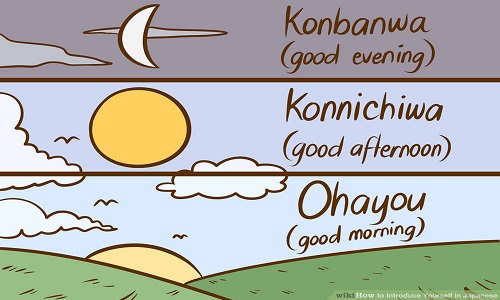Contents
Learn minna no nihongo lesson 20
3. Grammar
Polite form & Plain form
Polite form :
It is the polite way of speaking that can be used in all contexts and spoken to anyone, that’s why it is commonly used in everyday conversation with unfamiliar people, your superior.
「ます」 and 「です」 are called polite form of verbs.
Plain form :
To close friends, colleagues or family members, we will use the plain form
When using plain form, you need to pay attention to the age and relationship with the person whom you are communicating with, because if you use incorrectly, it will lead to impoliteness. So if you are not sure, you should use polite form.
How to conjugate:
Verb
Polite form :
| Present, Future | Past | |
| Positive form | かきます | かきました |
| Negative form | かきません | かきませんでした |
Plain form :
| Present, Future | Past | |
| Positive form | かく | かいた |
| Negative form | かかない | かかなかった |
Adj [い]
Polite form :
| Present, Future | Past | |
| Positive form | たかいです | たかかったです |
| Negative form | たかくないです | たかくなかったです |
Plain form :
| Present, Future | Past | |
| Positive form | たかい | たかかった |
| Negative form | たかくない | たかくなかった |
Adj [な]
Polite form :
| Present, Future | Past | |
| Positive form | げんきです | げんきでした |
| Negative form | げんきじゃ/ では ありません | げんきじゃ / では ありませんでした |
Plain form :
| Present, Future | Past | |
| Positive form | げんきだ | げんきだった |
| Negative form | げんきじゃない | げんきじゃなかった |
Noun
Polite form
| Present, Future | Past | |
| Positive form | あめです | あめでした |
| Negative form | あめじゃ / では ありません | あめじゃ / では ありませんでした |
Plain form :
| Present, Future | Past | |
| Positive form | あめだ | あめだった |
| Negative form | あめじゃない | あめじゃなかった |
Common conversation
In common questions, the particle [か] at the end of the question is often omitted, and the word at the end of that question is pronounced with a higher voice
Example :
コーヒーを飲む?
Kouhii o nomu?
Want some coffee?
うん、飲む。
Un, nomu.
Sure.
In the questions of the nouns and Adj [な], [だ], which is the plain form of [です], will be omitted. In a positive sentence, [だ] is also omitted otherwise that sentence will express too much confidence. Sometimes, the particles such as [よ], [ね] are also added to the end of the sentence to make the sentence easy to listen. Women often do not use [だ]
Example :
こんばん ひま?
Konban hima?
Are you free tonight?
うん、ひま/ ひまだ / ひまだよ。
Un, hima/himada/ himadayo.
Yeah, I’m free. (Use for men)
うん、ひま / ひまだよ。
Un, hima/ himadayo.
Yeah, I’m free (Use for women)
ううん、ひまじゃない。
Uun, himajanai.
No, I am not free (use for both men and women)
In the common sentence, the particle is often omitted if the meaning is understood clearly in the context
Example :
ごはん「を」たべる?
Gohan (o) taberu?
Do you eat rice?
あしたきょうと「へ」いかない?
Ashita kyouto (e) ikanai?
Will you go to Kyoto tomorrow?
このりんご「は」おいしいね。
Kono ringo (wa) oishii ne.
This apple is delicious!
*The particles [で],[に],[から],[まで],[と] can not be omitted because this will make the sentence unclear
けど
[けど] has the same meaning as [が]; however, [けど] is used in common conversation.
Example:
この料理は辛いけど、おいしい。
Kono ryouri wa karaikedo, oishi.
This dish is spicy but delicious.
4. Kaiwa
夏休みはどうするの?
Natsu yasumi wa dousuruno?
小林:夏休みは国へ帰るの?
Kobayashi: Natsuyasumi wa kuni e kaeru no?
タワポン:ううん。帰りたいけど、・・・・・。小林君はどうするの?
Tawapon: Uun. Kaeritaikedo,. Kobayashi-kun wa dou suru no?
小林:どうしようかな・・・・・。タワポン君、富士山に登ったことある?
Kobayashi: Dou shiyou ka na. Tawapon-kun, fujisan ni nobotta koto aru?
タワポン:ううん。
Tawapon: Uun.
小林:じゃ、よかったら、いっしょに行かない?
Kobayashi: Ja, yokattara, issho ni ikanai?
タワポン:うん。いつごろ?
Tawapon: Un. Itsugoro?
小林:8月の初めごろはどう?
Kobayashi: Hachigatsu no hajime-goro wa dou?
タワポン:いいね。
Tawapon: Iine
小林:じゃ、いろいろ調べて、また電話するよ。
Kobayashi: Ja, iroiro shirabete, mata denwa suru yo.
タワポン:ありがとう。待ってるよ。
Tawapon: Arigatou. Matteru yo.
Translation:
What are you going to do on summer vacation?
Kobayashi: Will you return to your country on summer vacation?
Thawaphon: No. I want to but………
What about Mr. Kobayashi?
Kobayashi: What should I do…..
Mr. Thawaphon, have you ever climbed Mt. Fuji?
Thawaphon: No.
Kobayashi: Well, if it is ok, shall we go together?
Thawaphon: Yup. When?
Kobayashi: How about the beginning of August?
Thawaphon: How nice.
Kobayashi: Well, I will check it and call you again.
Thawaphon: Thanks. I’m waiting for you.


